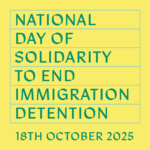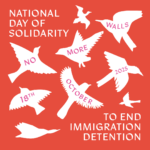
On 29 November, the government announced an increase to civil legal aid rates – the first in almost 30 years. This comes after a legal challenge, led by Duncan Lewis, on the government’s continued failure to raise the rates for immigration and asylum legal aid work.
The headline figure is that there will be an extra £20 million every year towards legal aid for civil cases (this means non-criminal) once fully implemented.
This legal update explains more about this uplift, and what it will mean for our communities.
What is legal aid and what are the current rates?
Legal aid helps people with little or no income get legal advice for free. The government allocates funds for this purpose.
Since 1996, there have been no increases to legal aid, meaning that for people working in civil legal aid, the rates have stayed the same while costs and inflation have increased over time. This means that there has effectively been a 48% pay cut in real terms for this work.
In theory, legal aid is available for asylum claims in the UK – but research shows that over 50% of people seeking asylum do not have access to legal aid, and we know that many people go through the asylum process without a legal representative.
Legal aid provision is slightly different in Scotland, where legal aid is administered by the Scottish Legal Aid Board.
It’s also important to note that in England and Wales, there is no legal aid available for non-asylum immigration issues.
What are the planned rate increases?
The government announcement says that it will launch a consultation of the rates in January 2025, but it is aiming to increase rates to:
- £65 outside of London
- £69 in London
- Or a 10% rise, whichever is higher.
What’s next?
Congratulations to all those who have been fighting for this. This uplift comes as the result of sustained pressure from many organisations working for better access for justice.
However, we must be realistic about what this uplift will mean for our communities, many of whom are affected by the ongoing appeals backlog, on top of the pre-existing asylum backlog.
It is unlikely that this uplift will be enough to make a significant difference to these entrenched problems. As pointed out by Migrants Organise, a small fee uplift alone is not enough to tackle this crisis. The number of unrepresented people going through the asylum and appeals process remain very high, and it is likely people will continue to rely on resources like the Right to Remain Toolkit to help them navigate the legal process without a lawyer.














Discussion: